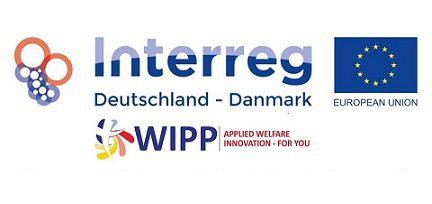More than 300 citizens in Esbjerg Municipality, Denmark, have now answered WIPP’s questionnaire. The questionnaire ensures that the prevention consultants come around all relevant parameters and on this basis can talk about what is most important to the citizens.

Previously, the goal of the preventive home visits was that the citizens could talk with the consultant about the living situation and the general well-being in everyday life. In Denmark, there is a legislation for the preventive home visits, which the consultants have to follow (Servicelov §79a). It contains guidelines for the target group, but does not have an associated questionnaire for the detection of risk areas. The consultants in Esbjerg Municipality have different education and experience in health care, and have not previously had a standardized questionnaire for home visits. It has always been the citizen’s individual wishes and needs that govern the conversation, but with WIPP’s questionnaire, the consultants have the opportunity to remember to ask all the way around the person. The questionnaire ensures a higher degree of uniformity in questions to the citizens. This promotes the early detection of high-risk areas, such as the tendency to fall, nutritional status and incontinence.
By standardizing the talks, it is possible to identify more risk factors at an early stage. In the long term, this gives the opportunity to move money from rehabilitation to prevention and to ensure more healthy life years for the citizens.
In the term of the WIPP project, the idea is that the citizen himself in advance via a link in the digital mailbox „e-Boks“ can complete the questionnaire. The prevention consultants then receive the result and have the opportunity to talk about the result and the wishes and needs of the citizens during the preventive home visit.
Experiences from practice
Some of our prevention consultants have shared their experience with the questionnaire:
“As a prevention consultant, it was an exciting and sometimes challenging project to hold 300 talks with the citizens. We met citizens who only said, “yes” to a preventive home visit because they could be part of a research project. We met citizens who got tired of too many questions during the visit. And we’ve met couples who have competed, who did better in the physical tests.
We have experienced that the use of the questionnaires has given rise to some discussions about things that we often did not address during a regular preventive home visit. With the many questions that have been asked, we have come a long way around. Especially the question of how many hours the individual sits down has left some people with an awareness of how little they are moving. After all, we have motivated most people to maintain their good exercise habits after being tested, as they help the body and also keep going for chronic illnesses. ”
“With the WIPP-questionnaire, you get around the citizens’ daily lives and get more issues up, including sleep, social activities and networks. And in this context, one is forced to ask the difficult questions, such as how much do you drink, and are you incontinent. All in all, you come very far around and thus have a tool in WIPP that you otherwise do not have at regular home visits.
The WIPP-questionnaire has many questions and with the very talkative citizen it can sometimes be a challenge to stick to the questions. In addition, WIPP has also included physical testing where we examine the balance of citizens, test getting up and sitting down, and performing memory tests. Most of the citizens have participated. When the physical test is part of the questionnaire, I have had to assess the citizen’s physical condition before we started using the WIPP-questionnaire, as I will not do physical tests with citizens who cannot implement them.
Today, the WIPP visits are over, and I can conclude that for most preventative home visits, some of my questions still emerge from the WIPP-questionnaire, including: how much do you drink or how many hours did you sit today? It is just as natural for me to do balancing exercises with the citizens, if the conversation leads to it. ”
Read more about:
Preventive home visit in Esbjerg
Preventive home visits by the National Association of SUFO (Landsforeningen for ansatte i Sundhedsfremmende Forebyggende hjemmebesøg)
Legislation for Preventive Home Visits in Denmark
https://www.retsinformation.dk/Forms/R0710.aspx?id=177812
